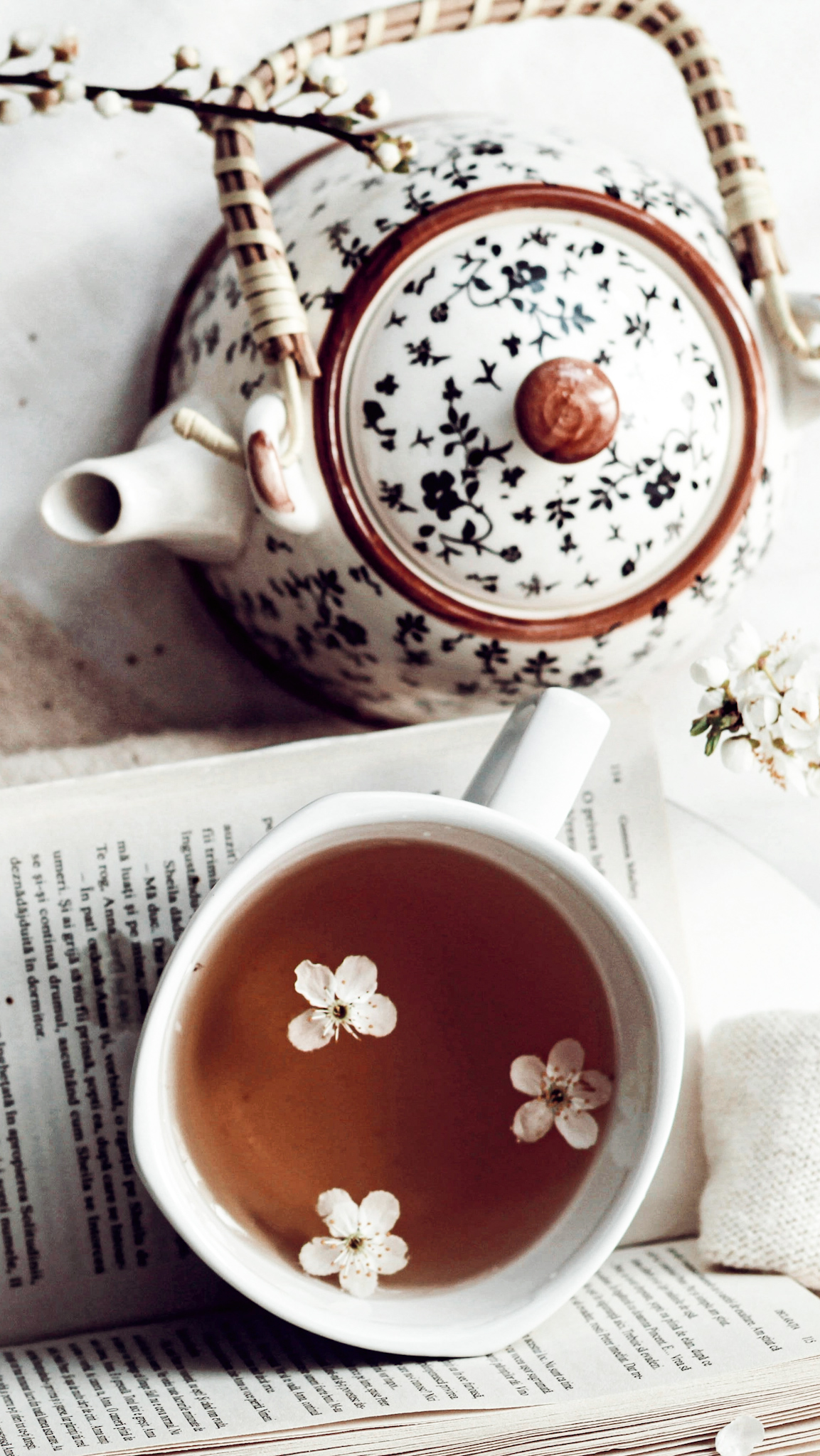10 Best Herbalism Books for Beginners To Start Your Natural Healing Journey

This post may contain affiliate links, which means I may earn a small commission if you make a purchase through these links — at no extra cost to you. Thank you for supporting the content I create here on the blog! You can read my full Disclosure Policy for more details.
In this article
If you’ve ever brewed chamomile tea to calm your nerves or reached for peppermint when your stomach feels off, you’ve already experienced a little herbal magic. Herbalism — the art of using plants for wellness — is both ancient and beautifully modern. It’s about slowing down, connecting with the earth, and taking your health into your own hands.
But if you’re just starting out, it can be hard to know where to begin. There are thousands of herbs, remedies, and traditions to explore — and not all advice online is trustworthy.
The best way to start your herbal journey? Curl up with a good book written by a trusted herbalist.
These herbalism books for beginners will walk you through the foundations of herbal medicine, from plant identification to tincture-making. They’re equal parts educational and inspiring — perfect for anyone who dreams of building a little apothecary of their own.
Why Learn Herbalism Through Books
Books give us something precious: stillness and structure. Learning herbalism through books means you can go deep — understanding why a plant works, not just what to use it for.
Books offer context that TikToks and Pinterest posts simply can’t. You’ll learn safety, dosages, and preparation methods — the kind of timeless wisdom passed down from herbalists who’ve spent decades in the garden and the apothecary.
And perhaps best of all, studying from books invites a slower rhythm. It’s about making a pot of tea, reading a few pages, and maybe going outside to see what’s growing around you.
The 10 Best Herbalism Books for Beginners
1. Rosemary Gladstar’s Medicinal Herbs: A Beginner’s Guide
By Rosemary Gladstar
If there’s one book that everyone agrees on, it’s this one. Rosemary Gladstar — affectionately called “the fairy godmother of herbalism” — has an unmatched ability to make plant medicine approachable. This book includes 33 of her favorite herbs, complete with profiles, photos, and over 120 DIY recipes for teas, tinctures, salves, and oils.
It’s warm, accessible, and full of heart — a must-have for your herbal shelf.
2. The Herbal Medicine-Maker’s Handbook
By James Green
Imagine sitting down with your witty, slightly eccentric herbal mentor and learning how to make medicine by hand — that’s this book. James Green covers everything from tinctures and glycerites to poultices and infused oils, in a conversational, humorous tone that makes even the science feel fun.
His approach is practical and empowering — you’ll walk away confident enough to stock your own apothecary.
3. The Complete Herbal Tutor: The Definitive Guide to the Principles and Practices of Herbal Medicine
By Anne McIntyre
Structured like a full herbalism course, this book gently leads you from the basics of plant anatomy to the energetics of herbs and how to formulate blends. McIntyre’s clear explanations and diagrams make it a favorite for those who want a comprehensive foundation.
4. Herbal Healing for Women
By Rosemary Gladstar
Rosemary Gladstar appears again for good reason. This book focuses on the unique needs of women through every life stage, from menstrual support to pregnancy and menopause. It’s beautifully written and full of recipes that nurture body and spirit alike.
5. The Modern Herbal Dispensatory: A Medicine-Making Guide
By Thomas Easley & Steven Horne
If you’re ready to take herbalism more seriously, this book is your next step. It’s a masterclass in creating herbal medicines — tinctures, capsules, salves, syrups — with in-depth explanations of extraction methods and formulation.
6. Alchemy of Herbs: Transform Everyday Ingredients into Foods and Remedies That Heal
By Rosalee de la Forêt
This gorgeous, photo-rich book bridges the gap between herbalism and everyday cooking. You’ll find recipes for cinnamon tea, garlic honey, and rose hot chocolate — all designed to heal from the inside out.
7. The Healing Kitchen: Cooking with Nourishing Herbs for Health, Wellness, and Vitality
By Holly Bellebuono
This book proves that herbalism isn’t just about tinctures — it’s about eating well. With recipes for broths, soups, herbal pestos, and tonics, Bellebuono teaches how to make healing part of every meal.
8. Body Into Balance: An Herbal Guide to Holistic Self-Care
By Maria Noël Groves
Think of this as your herbal roadmap to understanding the body. Groves explains how herbs support each system — digestion, immunity, mood — with practical formulas and gorgeous visuals. It’s both educational and deeply empowering.
9. Herbal Medicine from the Heart of the Earth
By Sharol Tilgner
Written by a naturopathic physician and herbalist, this classic book goes deeper into the science of herbal medicine. You’ll learn tincture ratios, dosages, and herbal energetics in detail. It’s slightly advanced, but worth it if you’re serious about herbal mastery.
10. Wild Remedies: How to Forage Healing Foods and Craft Your Own Herbal Medicine
By Rosalee de la Forêt & Emily Han
This one is for the nature lovers. Wild Remedies teaches you how to identify, harvest, and prepare local plants safely — with an emphasis on mindfulness and sustainability. The photos are breathtaking, and every recipe feels like a small act of reconnection with the natural world.
How to Start Your Herbal Learning Journey
Once you’ve chosen one or two books from this list, start slow and steady.
- Pick five to ten herbs to study — like chamomile, lavender, peppermint, nettle, and calendula.
- Keep a herbal journal to note how each herb looks, smells, and makes you feel.
- Try one new recipe a week, whether it’s a tea blend, infused honey, or homemade balm.
- Explore your local area — even city parks have edible and medicinal plants (just forage responsibly!).
And remember: herbalism isn’t about perfection or memorization. It’s about connection — to plants, the seasons, and yourself.
Herbalism Books FAQs
What’s the best herbalism book for total beginners?
Rosemary Gladstar’s Medicinal Herbs: A Beginner’s Guide is hands-down the best starting point. It’s approachable, beautifully illustrated, and teaches you the essentials — from making tea blends to salves — with warmth and clarity.
Can I learn herbalism from books alone?
Books are a great foundation, but herbalism truly comes alive when you practice. Start by studying, then experiment safely with teas, tinctures, and infused oils. Over time, you’ll develop your own relationship with the plants you read about.
Are these herbalism books safe for beginners?
Yes — every book on this list is written by certified herbalists and includes safety guidelines, dosage notes, and contraindications. Always cross-reference if you’re taking medications or have health conditions.
Which herbalism book teaches you how to make tinctures and remedies?
The Herbal Medicine-Maker’s Handbook by James Green and The Modern Herbal Dispensatory by Easley & Horne both dive deep into DIY medicine-making with clear, step-by-step instructions.
What’s a good herbalism book for women’s health?
Herbal Healing for Women by Rosemary Gladstar is a gentle, empowering guide to supporting the body naturally through every stage of life — from menstrual cycles to menopause.
Can I learn herbalism at home?
Absolutely. Start small with a few herbs, keep a herbal journal, and practice recipes from these beginner-friendly books. Over time, you’ll gain confidence — and maybe even grow your own mini-apothecary.

